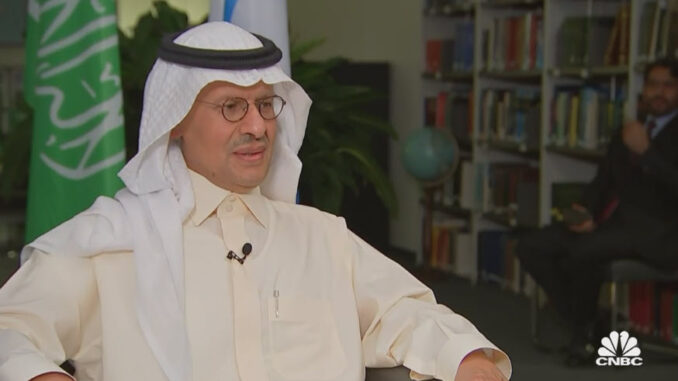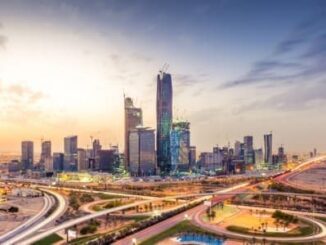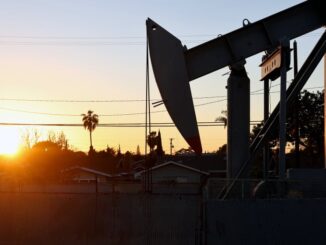
CNBC’s Brian Sullivan sits down with Saudi Arabia’s Prince Abdulaziz bin Salman to discuss the decision from OPEC+ to cut oil production, a move that has sparked intense criticism from the White House.
The OPEC+ output cut decision in Vienna, Austria on Wednesday was one of the most impactful global economic events of the year. The group, which decided just a few days earlier to meet in person instead of virtually, shocked many in the world with a 2 million barrel per day cut to their quotas. Because many nations are not able to meet even their current quotas, the ‘real’ daily barrels coming off the market for the next couple of months will be about 900,000. Oil prices rose in the days leading up to the meeting, though they are flat from the price just before Putin’s invasion of Ukraine.
Saudi Energy Minister Prince Abdulaziz Bin Salman led the post-meeting press conference, where he took a number of questions from about 100 journalists and analysts who made the trek to Vienna on short notice. After the presser, he sat down with CNBC for an interview, where we touched on oil markets, price caps and concerns about central banks hitting economies – and perhaps the price of oil – by raising rates too quickly. He also highlighted a graphic they had shown to the assembled media that unlike the big spikes in natural gas, LNG and coal, the price of crude oil is now essentially flat from where it was before Putin invaded Ukraine.
The Russian delegation – led by former energy minister and now Deputy Prime Minister Alexander Novak – shocked many by also attending the meeting in person, though Novak was notably absent from the podium during the press conference, something Saudi officials wanted to highlight.
In a follow up call, a senior Saudi official wanted to make it clear that this output cut was not about “siding with Russia,” and added “to think we are on anyone’s side except that of Saudi Arabia is absurd,” and once again noted that oil producing nations owe a duty to their own people and governments about protecting national interests.
Much of the global coverage of the OPEC decision is focusing on any potential political angles to the decision. However in interviews, like ours below, Prince Abdulaziz defers any directly political questions, noting that the OPEC building is viewed as a neutral “Switzerland.” It is government in Riyadh’s role to handle issues of national politics. This has been a consistent theme with the Prince for years, and expect it to remain so in the future, which is why the focus of the interview is on oil markets, fundamentals and global economies.



